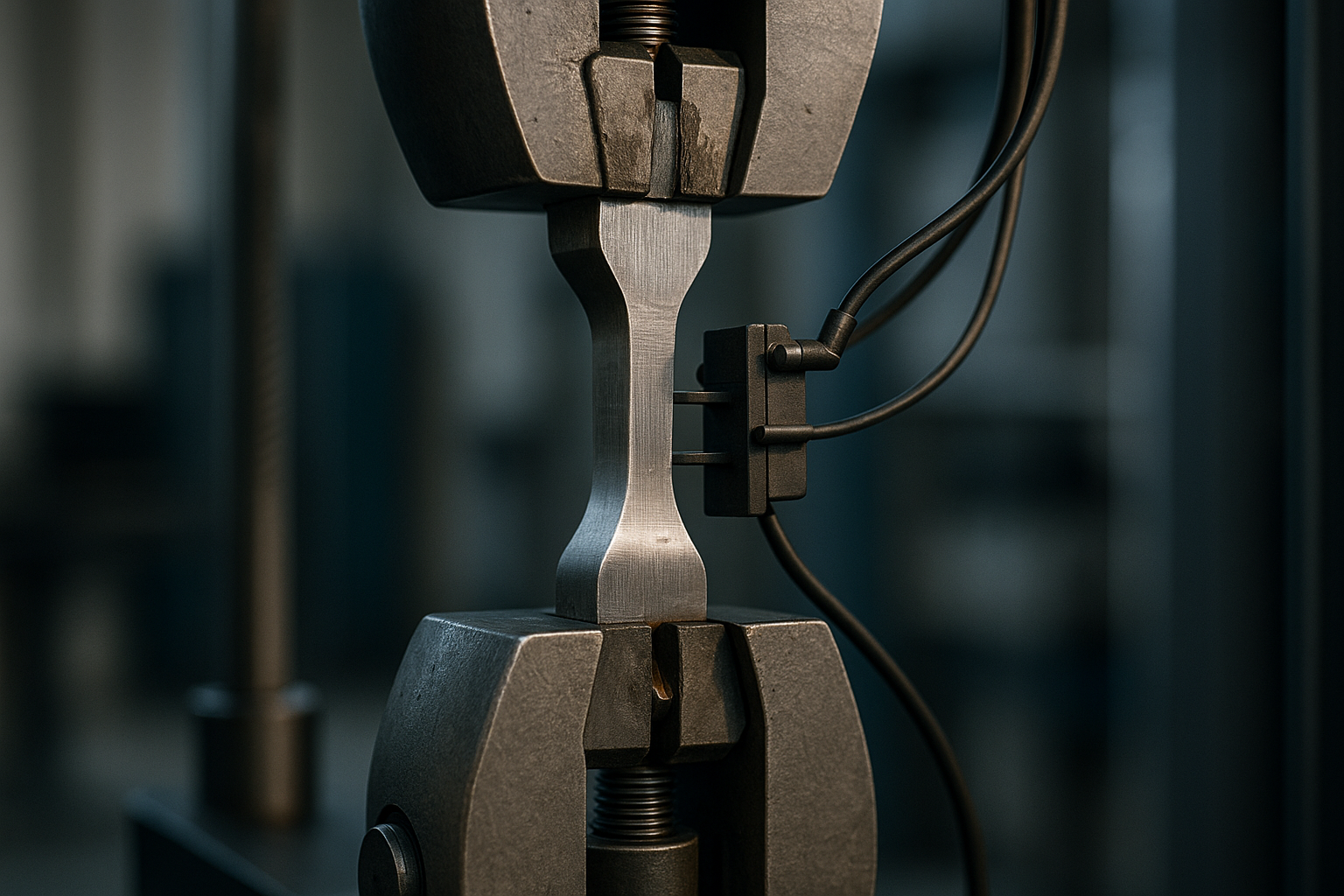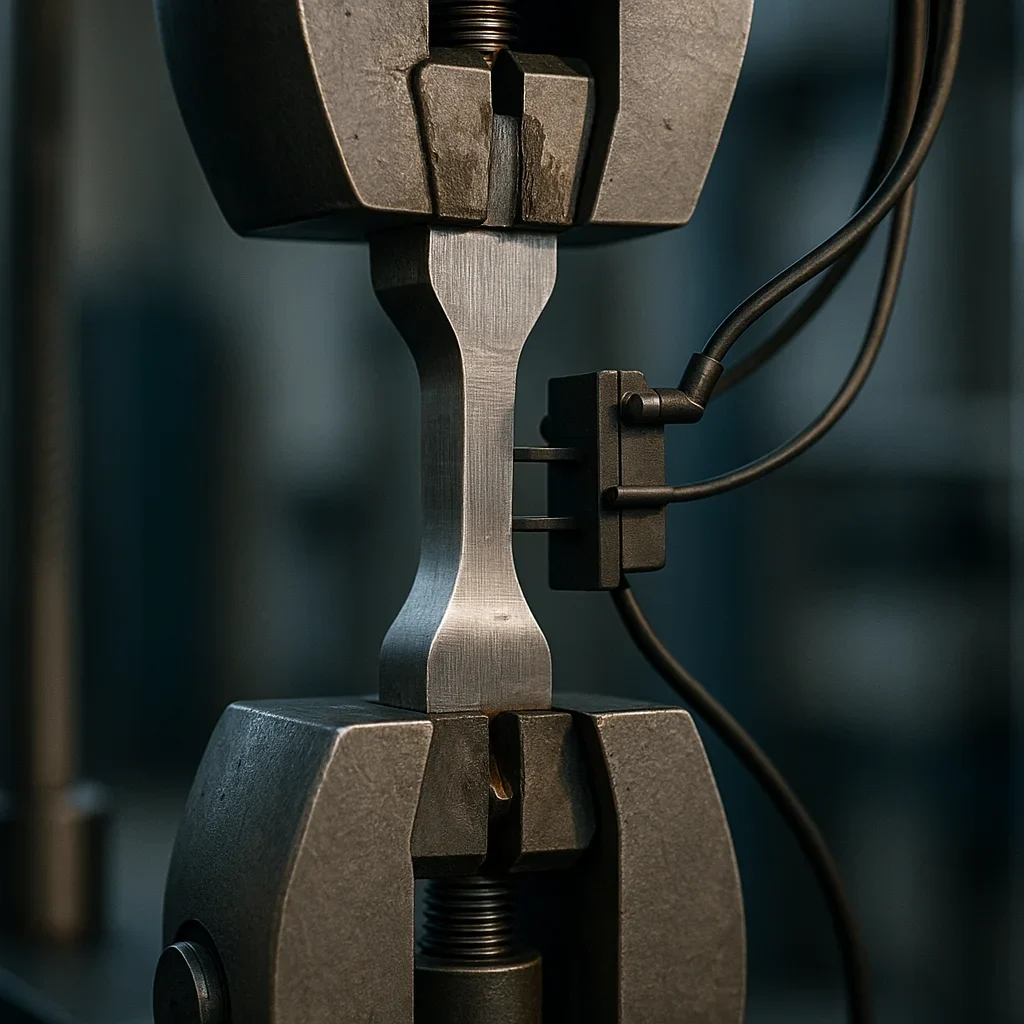

Material Testing
NEXAMS Advancing Material Testing Services with Precision Quality Control and Product Reliability Assurance
Material Testing is a critical process used to evaluate the mechanical, physical, and chemical properties of materials to ensure they meet the required performance criteria for specific applications. At NEXAMS, we specialize in material testing quality control method strategies that validate product integrity, durability, and compliance with international standards like ASTM and ISO. Our approach is empathetic and ethical, balancing timelines, cost, and safety so decisions are transparent and human-centered.
From material testing tensile strength evaluation to hardness testing, NEXAMS offers a comprehensive suite of product testing services designed to address quality assurance challenges in industries such as aerospace, automotive, construction, and medical devices. By integrating material testing predictive quality control, we help organizations optimize their value chain through accurate diagnostics and failure prevention strategies, while keeping stakeholders informed at every step.
Our material testing astm standard procedures encompass mechanical, thermal, chemical, and durability testing protocols, ensuring every material is validated for safety, strength, and long-term reliability. Additionally, advanced emc testing services ensure compliance with electromagnetic compatibility standards, safeguarding product functionality in complex environments. We coordinate with Vendors, a dedicated Supplier, trusted Suppliers, experienced Manufacturers, and provide ongoing Support through local teams nearby.
Key Advantages of Material Testing Technology
Enhances material testing quality control method for robust product validation.
Facilitates material testing tensile strength evaluation to measure load-bearing capacity.
Ensures adherence to material testing astm standard procedures for industry compliance.
Implements material testing predictive quality control to foresee potential material failures.
Provides comprehensive hardness testing to assess material wear resistance.
Expands emc testing capabilities to verify electromagnetic interference resilience.
Enables durability testing for lifecycle assessment and environmental stress analysis.
Supports product testing methodologies for consistent quality delivery across the value chain.
We coordinate with Vendors, a dedicated Supplier, trusted Suppliers, experienced Manufacturers, and provide ongoing Support through local teams nearby.
Industrial Applications and Use Cases
Aerospace: Structural component validation through material testing tensile strength evaluation and hardness testing.
Automotive: Ensuring material performance under vibration and load using material testing predictive quality control techniques.
Electronics: EMC testing for devices requiring electromagnetic compatibility compliance.
Construction: Verifying material testing astm standard procedures for building materials.
Medical Devices: Critical product testing ensuring safety, biocompatibility, and sterilization endurance.
Heavy Machinery: Lifecycle durability testing to assess wear, fatigue, and corrosion resistance.
Energy Sector: Materials qualified for extreme temperature and pressure environments using rigorous methods.
We coordinate with Vendors, a dedicated Supplier, trusted Suppliers, experienced Manufacturers, and provide ongoing Support through local teams nearby.
Materials Tested at NEXAMS
Metals: Including steel, aluminum alloys, and composites subjected to material testing tensile strength evaluation.
Polymers: Evaluated for elasticity, hardness testing, and environmental stress resistance.
Ceramics: Tested for thermal stability and fracture toughness using material testing astm standard procedures.
Composites: Advanced product testing for layered systems used in aerospace and automotive industries.
Electronics: EMC testing performed on components for electromagnetic interference resilience.
We coordinate with Vendors, a dedicated Supplier, trusted Suppliers, experienced Manufacturers, and provide ongoing Support through local teams nearby.
How Material Testing Costing Works
Material testing costs at NEXAMS are structured based on the scope of analysis, including product testing depth, sample volume, and test complexity. High-precision evaluations like material testing tensile strength evaluation and durability testing are optimized using automation, ensuring efficiency without compromising accuracy. For industries with regulatory compliance needs, our adherence to material testing astm standard procedures helps reduce certification timelines and enables cost-effective validation.
We coordinate with Vendors, a dedicated Supplier, trusted Suppliers, experienced Manufacturers, and provide ongoing Support through local teams nearby.
Alternative Technical Testing Solutions
Non-Destructive Testing (NDT): Includes X-ray, Ultrasonic, and emc testing to detect internal defects without harming the component.
Accelerated Durability Testing: Simulates environmental stress conditions for lifecycle validation.
Spectrographic Analysis: Determines chemical composition through precise material testing astm standard procedures.
Impact Testing: Evaluates toughness under sudden forces, essential for structural product testing.
Surface Integrity & Hardness Testing: Rockwell, Brinell, and Vickers methods for wear resistance analysis.
Predictive Modelling: Advanced tools to foresee failure points and optimize design robustness.
We coordinate with Vendors, a dedicated Supplier, trusted Suppliers, experienced Manufacturers, and provide ongoing Support through local teams nearby.
FAQs
Below are clear, decision-ready answers that emphasize safety, transparency, and responsible engineering.
We coordinate with Vendors, a dedicated Supplier, trusted Suppliers, experienced Manufacturers, and provide ongoing Support through local teams nearby.
What is Material Testing?
Material Testing involves evaluating the physical, mechanical, and chemical properties of materials to ensure they meet specific performance, safety, and quality standards.
How is Material Testing critical for product testing and quality assurance?
Through methods like material testing quality control method and material testing tensile strength evaluation, NEXAMS verifies reliability and prevents failures in end-use applications.
What standards are followed in NEXAMS Material Testing procedures?
NEXAMS adheres to material testing astm standard procedures, ISO guidelines, and industry-specific benchmarks for comprehensive material validation.
What is material testing predictive quality control, and how does it benefit manufacturers?
Predictive quality control uses testing data to forecast potential weaknesses, enabling proactive corrections that enhance overall value chain efficiency.
How does durability testing contribute to product reliability?
Durability testing simulates real-world stress conditions, ensuring materials maintain performance over their intended lifecycle without degradation.
Which industries benefit the most from emc testing services?
EMC testing is vital for electronics, automotive systems, aerospace communication devices, and medical equipment requiring electromagnetic compliance.
How is hardness testing performed at NEXAMS?
We employ Rockwell, Brinell, and Vickers methods to evaluate wear resistance and deformation characteristics.
What types of mechanical testing does NEXAMS offer?
We provide tensile, compression, fatigue, and impact testing to assess mechanical robustness.
Can NEXAMS customize product testing protocols for specific projects?
Yes, we design tailored plans based on application requirements and regulatory needs.
What are the environmental benefits of using material testing predictive quality control?
By minimizing waste and optimizing material usage, predictive quality control enhances sustainability across the value chain.
We coordinate with Vendors, a dedicated Supplier, trusted Suppliers, experienced Manufacturers, and provide ongoing Support through local teams nearby.
Q: What are the maximum estimated shipping times from the factory to global regions for Brazing parts via sea and air?A: By Sea: Asia: 15–20 days, Europe: 25–35 days, North America: 30–40 days, South America: 35–45 days, Middle East: 14–18 days, Africa: 20–28 days, Oceania: 22–30 days
By Air: Asia: 1–3 days, Europe: 3–5 days, North America: 4–6 days, South America: 5–7 days, Middle East: 1–2 days, Africa: 3–5 days, Oceania: 4–6 days
